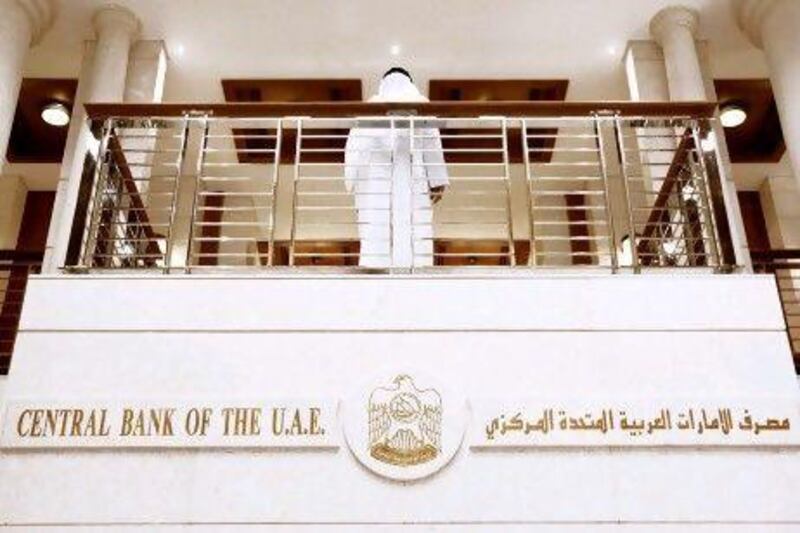Banks will have easier access to funds in the event of a financial crisis after moves by the UAE Central Bank to ease short-term borrowing, Moody's Investors Service said yesterday.
The introduction of a new discount window is "credit positive" for lenders, according to the ratings agency. Last week, the Central Bank said it would allow UAE banks to borrow intraday or overnight funding to shield money markets from liquidity shortfalls. The framework is called the marginal lending facility, or MLF.
"This new monetary policy tool will improve local banks' liquidity management practices, a credit positive," the report said.
"The MLF will clarify the framework within which local banks can access collateralised funding from the [Central Bank]. The Central Bank will publish a list of assets eligible for the MLF and we also expect the terms and conditions of borrowing to be agreed upon in advance, enabling UAE banks to maintain a portfolio of eligible assets for the provision of liquidity in stress scenarios."
Of about Dh100 billion (US$27.22bn) in domestic securities held by UAE banks, a large portion is expected to be sovereign-linked and eligible for the facility.
It also expects longer-dated bonds will be eligible under the facility, encouraging banks to borrow funds with a longer tenure.
During the financial crisis, in September 2008, a sudden withdrawal of liquidity from UAE banks resulted in the Central Bank taking the unprecedented step of providing billions of dirhams of liquidity support to local lenders.
The nod of approval for the Central Bank comes as the Bank for International Settlements points to deposits flooding into the international banking system for the UAE.
A total of $10.8bn was deposited during the first quarter of the year, representing a 14.9 per cent increase over the previous quarter to $83.7bn.
During the summer, Moody's downgrades of 15 global investment banks put six Arabian Gulf lenders on an equal or stronger credit rating than many international lenders, with the regional banks' strength largely attributable of their governmental ownership.





